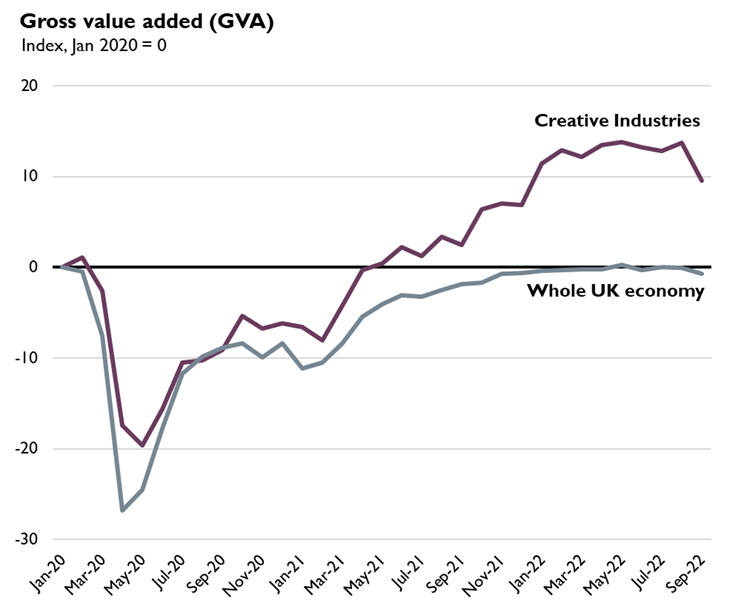Still doesn't define its actual targets - because its just hot air.
Also - can you confirm where there is a massive number of high paying high skilled jobs are for these mathematicians - science graduates and biologists ? All we read about is visa's for lorry drivers, butchers, bakers, brickies, plasterers and roofers none of which traditionally recruit from Humanities or History graduates.
Would have been better spending their time concentrating on reviving the movement deals which were offered by the EU and declined by the Govt to allow musicians and artists to tour given that the arts contributed £100bn + to the UK
On 8 December 2022, the House of Lords is due to consider the following:
1. Contribution of creative industries to the UK economy: facts and figures
1.1 Economic output
Recent data from the Department for Digital, Culture, Media and Sport (DCMS) shows that:
- The creative industries sector contributed £109bn to the UK economy in 2021. This is equivalent to 5.6% of the UK economy that year. The largest subsector within the creative industries was IT, software and computer services, which accounted for 2.3% of the UK economy in 2021. (These figures are based on monthly estimates for gross value added (GVA).)
- While the economic output of the creative industries fell during the Covid-19 pandemic, it was less adversely affected than the UK economy as a whole. Monthly GVA in the creative industries fell by 6.6% between January 2020 and January 2021, compared with the 11% decline for the UK economy as a whole. However, certain subsectors within the creative industries were more adversely affected. For example, over the same period, the monthly GVA for museums, galleries and libraries fell by 37%. Indeed, during the pandemic visitor numbers for DCMS-sponsored museums fell from 50 million visitors in 2019 to 11.5 million in 2020. Music, performing arts and the visual arts also saw a decline in economic output, with its GVA falling by 35%.
- Growth in both the creative industries sector and the economy as a whole declined in September 2022 compared with the previous month.
- However, overall, the creative industries sector grew by 6.9% in September 2022 compared with the same month in 2021. Growth across the UK economy as a whole was 1.2% over the same period. Indeed, as demonstrated by the graph below, growth in the creative industries has been higher than across the whole of the economy since the outbreak of the Covid-19 pandemic.


